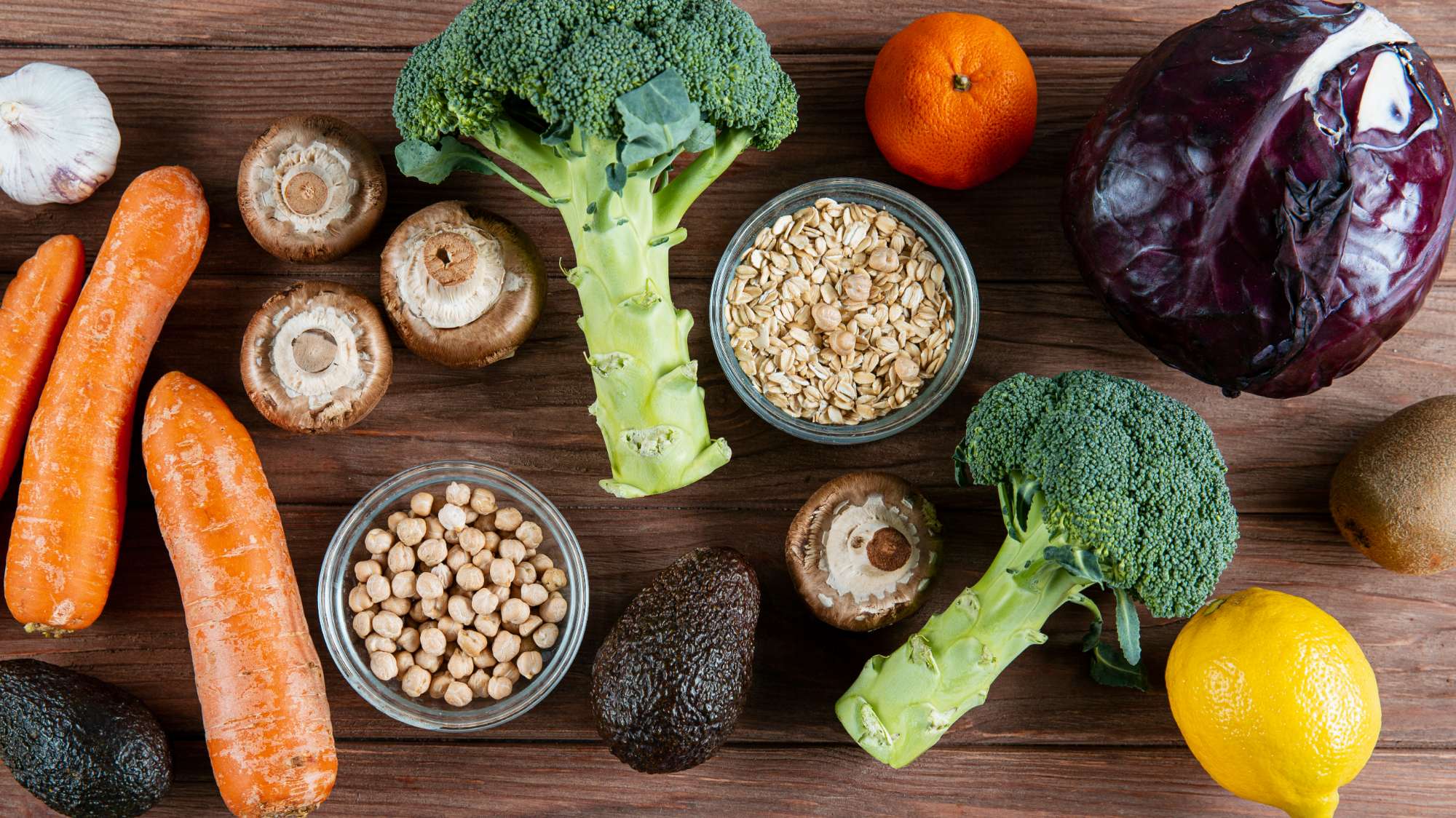Copper supports dozens of enzymes in metabolic processes
Copper supports dozens of enzymes in metabolic processes
Copper is a trace mineral that you need to staying healthy. Your body uses copper to carry out many important functions, including making energy, connective tissues, and blood vessels. Copper also helps maintain the nervous and immune systems and activates genes. Your body also needs copper for brain development.
Role of copper in the body
Copper, an essential mineral, is naturally present in some foods. Almost two-thirds of the body’s copper is located in the skeleton and muscle. It is a cofactor for several enzymes (known as cuproenzymes) involved in energy production, iron metabolism, neuropeptide activation, connective tissue synthesis, and neurotransmitter synthesis. One abundant cuproenzyme is ceruloplasmin (CP), which plays a role in iron metabolism and carries more than 95% of the total copper in healthy human plasm. Copper is also involved in many physiologic processes, such as angiogenesis; neurohormone homeostasis; and regulation of gene expression, brain development, pigmentation, and immune system functioning. In addition, defense against oxidative damage depends mainly on the copper-containing superoxide dismutases.
Only small amounts of copper are typically stored in the body, and the average adult has a total body content of 50–120 mg copper. Most copper is excreted in bile, and a small amount is excreted in urine. Total fecal losses of copper of biliary origin and nonabsorbed dietary copper are about 1 mg/day. Copper levels in the body are homeostatically maintained by copper absorption from the intestine and copper release by the liver into bile to provide protection from copper deficiency and toxicity.
.jpg)
Health risks if copper deficiency
Copper deficiency is very rare. A copper deficiency can cause extreme tiredness, lightened patches of skin, high levels of cholesterol in the blood, and connective tissue disorders affecting the ligaments and skin. Other effects of copper deficiency are weak and brittle bones, loss of balance and coordination, and increased risk of infection. Signs of deficiency include: anemia, high cholesterol, osteoporosis, bone fractures, increased infections, loss of skin pigment.
Health risks from excessive copper
This toxicity is rare in healthy individuals as the body is efficient at excreting excess copper. It has been seen with Wilson’s disease, a rare genetic condition, that prevents copper from exiting the body and therefore leading to high blood levels. Severe liver damage and digestive symptoms such as nausea, vomiting, diarrhea, and abdominal pain may occur. Although very rare, it is possible to consume excess copper if continuously storing and then serving boiling liquids from corroding copper or brass vessels.
How much copper do I need?
RDA: Recommended Dietary AllowanceThe amount of copper you need each day depends on your age. Average daily recommended amounts are listed below in micrograms (mcg).
Birth to 6 months: 200 mcg
Infants 7–12 months: 220 mcg
Children 1–3 years: 340 mcg
Children 4–8 years: 440 mcg
Children 9–13 years: 700 mcg
Teens 14–18 years: 890 mcg
Adults 19 years and older: 900 mcg
Pregnant teens and women: 1,000 mcg
Breastfeeding teens and women: 1,300 mcg
UL: The Tolerable Upper Intake LevelThe Tolerable Upper Intake Level (UL) is the maximum daily intake unlikely to cause harmful effects on health. The UL for copper for adults 19+ years and those pregnant and lactating is 10,000 micrograms daily.
.jpg)
Natural food sources rich in copper
Copper is found in highest amounts in protein foods like organ meats, shellfish, fish, nuts, and seeds as well as whole grains and chocolate. The absorption of copper in the body will increase if the diet contains less copper, and decrease if the body has enough copper.
- Beef liver, salmon and shellfish such as oysters, crab
- Wheat-bran cereals and whole-grain products
- Spinach, potatoes, mushrooms, avocados, chickpeas, and tofu
- Nuts (such as cashews), seeds (such as sesame and sunflower), and dark unsweetened chocolate
What kinds of copper dietary supplements?
Copper is available in many multivitamin/mineral supplements, in supplements that contain only copper, and in other dietary supplements. Copper in dietary supplements is often in the forms of cupric oxide, cupric sulfate, copper amino acid chelates, and copper gluconate. It is not known whether one form of copper is better than another.

Copper and Health
Because dozens of enzymes use copper to perform metabolic processes throughout the body, it is believed that both an excess and deficiency of copper may interrupt these normal processes and a stable level is required for optimal health. The body is typically efficient at stabilizing copper levels (absorption increases if copper intake is low, and vice versa). Abnormal copper levels result from genetic mutations, aging, or environmental influences that may predispose to conditions such as cancer, inflammation, and neurodegeneration.
1. Cardiovascular diseaseCopper can have “pro-oxidant” effects that potentially cause stress and damage to cells. The muscles in the heart contain high concentrations of copper, and may be negatively affected by either a deficiency or toxicity of the mineral. Both conditions have been associated with atherogenesis, the early build-up of plaque in heart arteries. Some cohort studies show an association with higher self-reported intakes of copper and lower blood pressure and LDL cholesterol, as well as increased risk of heart disease with a copper deficiency. Other cohort studies show an increased risk of death from cardiovascular disease in people with higher copper blood levels compared with lower levels, although it should be noted that the higher blood levels in these studies remained within a normal range. Due to these mixed findings, more research is needed before making conclusions on the cardiovascular effect of copper.
2. Alzheimer’s diseaseSome research shows that those with higher copper levels have a lower risk of Alzheimer’s disease (AD), but both low and high blood levels of copper have been reported in the brains of people with AD. A meta-analysis showed that people with AD had higher serum copper levels than those without AD. However, a double-blind placebo-controlled trial did not show that copper supplements given for 12 months improved cognition in participants with mild AD. Additionally, observational prospective studies have not found that self-reported dietary and total copper intakes are associated with cognitive decline. More research is needed to better understand if and how high or low levels of copper are associated with AD risk.
3. CancerCopper may play a role in cancer for several reasons. It supports angiogenesis, the growth of blood vessels that feed a tumor, and activates enzymes and signaling proteins used by cancer cells. An emerging area of research has focused on the role of copper in metastatic cancer cells (these are cells that break away from a primary tumor and spread to other areas in the body). Levels of copper in these aggressive cells were found to be higher than in non-metastatic cancer cells. Intentionally depleting copper levels by blocking its bioavailability may reduce the energy these cells need to travel in the body. Chelation-based treatments that bind to and inactivate copper are being researched.

Groups at Risk of Copper Inadequacy
Most people get enough copper from the foods they eat. However, certain groups of people are more likely than others to have trouble getting enough copper. Which groups of people are they?
1. People with celiac diseaseIn a study of 200 adults and children with celiac disease, of which 69.9% claimed to maintain a gluten-free diet, 15% had copper deficiency (less than 70 mcg/dL in serum in men and girls younger than 12 years and less than 80 mcg/dL in women older than 12 years and/or CP less than 170 mg/L) as a result of intestinal malabsorption resulting from the intestinal lining alterations associated with celiac disease. In its 2009 clinical guidelines for celiac disease, the American College of Gastroenterology notes that people with celiac disease appear to have an increased risk of copper deficiency and that copper levels normalize within a month of adequate copper supplementation while eating a gluten-free diet.
2. People with Menkes diseaseMenkes disease is a rare, X-linked, recessive disorder of copper homeostasis caused by ATP7A mutations, which encode a copper-transporting ATPase. In these individuals, intestinal absorption of dietary copper drops sharply, leading to signs of copper deficiency, including low serum copper and CP levels. The typical manifestations of Menkes disease include failure to thrive, impaired cognitive development, aortic aneurysms, seizures, and unusually kinky hair. Most individuals with Menkes disease die by age 3 years if untreated, but subcutaneous injections of copper starting in the first few weeks after birth can reduce mortality risk and improve development.
3. People taking high doses of zinc supplementsHigh dietary intakes of zinc can interfere with copper absorption, and excessive use of zinc supplements can lead to copper deficiency. Reductions in erythrocyte copper-zinc superoxide dismutase, a marker of copper status, have been reported with even moderately high zinc intakes of approximately 60 mg/day for up to 10 weeks. People who regularly consume high doses of zinc from supplements or use excessive amounts of zinc-containing denture creams can develop copper deficiency because zinc can inhibit copper absorption. This is one reason the FNB established the UL for zinc at 40 mg/day for adults.

Interaction with medications
Does copper interact with medications or other dietary supplements?
Copper is not known to interact with any medications. However, it’s always important to tell your doctor, pharmacist, and other health care providers about any dietary supplements and prescription or over-the-counter medicines you take. They can tell you if the dietary supplements might interact with your medicines or if the medicines might interfere with how your body absorbs, uses, or breaks down nutrients such as copper.
Did you know?
Although copper is naturally found in water, excessive levels of copper in drinking water is usually caused by leaked copper from old, corroded household pipes and faucets. There is greater risk if water is stagnant from lack of use or using hot tap water (copper more easily dissolves at higher temperatures). In these cases, exposure to excess copper can be decreased by running cold tap water for several minutes before using. It is also advised to use only cold tap water for drinking and cooking, and to avoid drinking hot tap water.
Compiled and penned by Crocus Media
Products

Drip Bags Coffee
This is a combination version of the delicate sweetness of Red Bourbon coffee with the rich sweetness of Catimor coffee, taking the seductive aroma of Bourbon to activate the feeling of euphoria. Pre-ground coffee, contained in a paper filter bag, is very convenient and saves time to make a perfect cup of coffee that brings many health benefits and mental refreshment.



.jpg)